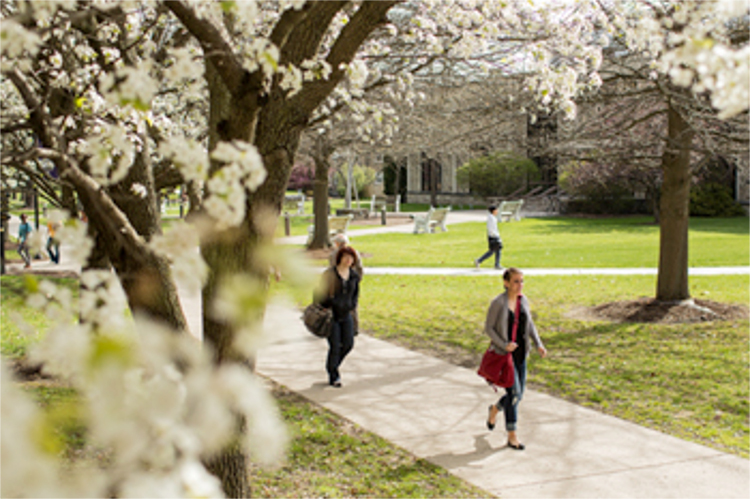
California SB 1146 is Modified to Remove Penalties for Religious Colleges and Universities That Hold Minority Views
Stanley Carlson-Thies, August 11, 2016
SB 1146, a bill in the California legislature that would have severely penalized religious higher education in the state, is being dramatically rewritten by its sponsor, in response to a growing outpouring of concern to protect minority beliefs. It will now require disclosure but not directly penalize institutions that are out of step with contemporary sexual morality in the state by holding these minority views.
The bill, championed as supposedly essential to provide anti-discrimination protections to LGBT students attending religious colleges and universities in California, had already been modified numerous times. It had two major features: a disclosure requirement and drastic shrinkage of the exemption in California law that had protected the minority beliefs and practices of religiously and morally conservative higher education institutions.
The disclosure requirement would require California religious colleges and universities to disclose in multiple ways if they hold an exemption to the federal Title IX ban on sex discrimination, which the federal government now interprets as also banning discrimination on the bases of sexual orientation and gender identity. Disclosure is already common, because the institutions want prospective students, faculty, and staff to understand their respective policies and convictions. The federal Department of Education now maintains a webpage to highlight institutions that have the exemption; SB 1146 would create a counterpart state website, seen by some proponents of the law as a way to ‘shame’ these institutions. But disclosure itself is not a problem.
The damaging feature, now removed, was the shrinkage of the exemption. State law has a requirement that any institution that receives state support (either directly or via enrolling students who hold state scholarships) may not discriminate based on, among other characteristics, sexual orientation, gender identity, and religion. Religious liberal arts colleges have been exempt from this requirement, allowing them to maintain their religious and sexual standards. The now-abandoned requirement of SB 1146 would have severely narrowed the exemption to only seminaries and programs dedicated to training religious workers. Precisely what would be forbidden and permitted was not entirely clear, but the major effect was inescapable: religious colleges and universities could maintain strong religious and moral standards—and be excluded from state funding and become off-limits to students holding state scholarships; or they could remain eligible for state support and affordable for lower-income students, but only by abandoning long-standing religious and moral principles.
The day before Sen. Ricardo Lara announced his major change to the bill, a letter was released to the public protesting against it and the damage it would cause. The letter, organized by the Southern Baptist Ethics and Religious Liberty Committee, pointed out that the bill, if it becomes law, “would severely restrict the ability of religious education institutions to set expectations of belief and conduct that align with the institution’s religious tenets.” While the signers do not necessarily agree on religion nor morality, they joined in opposition to legislation that “puts into principle that majoritarian beliefs are more deserving of legal protection, and that minority viewpoints are deserving of government harassment.” “Some of us disagree with the sexual ethics of orthodox Jews, Christians, and Muslims giving rise to this legislation,” the letter said, “but we are unified in our resistance to the government setting up its own system of orthodoxy.”
SB 1146 was not of concern only to religious higher education in California. If it became law as it had been, it would likely serve as a precedent for California legislators who find it objectionable that other kinds of faith-based organizations, too, often adhere to practices not considered mainstream in the state. And it could well serve as a precedent in other states or at the federal level.
Note that the practices SB 1146 sought to penalize are not illegal: it is not against the law for a faith-based college in California to ask students to model their lives according to a religion’s values of compassion, service, and chastity and to hire faculty based on faith. SB 1146 was a government penalty bill, threatening institutions that follow those legal practices with loss of state support, loss of students with state scholarships, and exposure to lawsuits.
This is not the way for our society’s deep differences concerning religion and human sexuality to be dealt with. Students and faculty with minority moral values are citizens no less than those with other moral values, and no one requires students and faculty with other moral values to choose a college or university that is based on faith. Civil society—institutions such as independent colleges and K-12 schools, day care centers and adoption services, residential addiction programs and faith-based after-school programs—is the place where diversity can be the rule and should be the rule. Government should respect and support the diverse convictions of its citizens and the organizations they create to reflect their convictions in services offered to the community.
